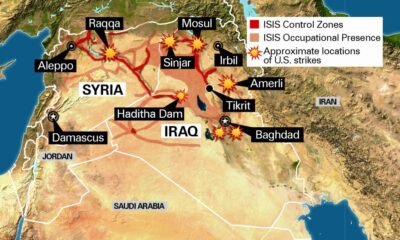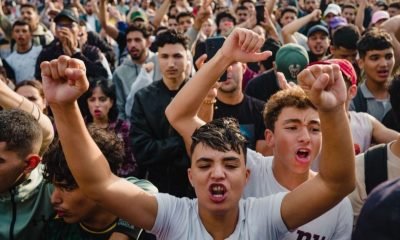Top stories
Islamic Fashion Trends: Embracing Modesty with Style
By Kasim Abdulkadir:
In recent years, Islamic fashion has emerged as a dynamic and vibrant industry, reflecting the diverse cultural and sartorial expressions of Muslim communities around the world. From modest clothing lines to innovative hijab designs, Islamic fashion continues to evolve, offering Muslim men and women a plethora of stylish options that align with their faith and values.
One of the key trends dominating the Islamic fashion scene is the fusion of modesty with contemporary style. Designers are reimagining traditional garments such as abayas, jilbabs, and kaftans, infusing them with modern silhouettes, textures, and embellishments. The result is a sophisticated blend of modesty and elegance that resonates with fashion-conscious Muslims seeking to express their identity while adhering to Islamic principles.
Another trend gaining traction is the rise of sustainable and ethical fashion within the Islamic clothing industry. With growing awareness of environmental issues and social responsibility, Muslim fashion brands are increasingly embracing eco-friendly materials, ethical production practices, and fair trade principles. From organic cotton hijabs to ethically sourced modest wear, consumers are now spoilt for choice when it comes to making sustainable fashion choices.
In addition to clothing, accessories such as hijab pins, modest swimwear, and halal cosmetics are also experiencing a surge in popularity among Muslim consumers. Brands are catering to diverse preferences and needs, offering a wide range of options that cater to various lifestyles and occasions.
Social media platforms like Instagram and TikTok have played a significant role in shaping Islamic fashion trends, providing a platform for Muslim influencers, bloggers, and designers to showcase their creativity and connect with a global audience. Hashtags like #ModestFashion and #HijabStyle have become virtual hubs for fashion inspiration and community building within the Muslim fashion sphere.
Beyond aesthetics, Islamic fashion embodies a deeper sense of cultural identity and religious expression for many Muslims. It serves as a means of asserting one’s faith in a world where Islamophobia and cultural stereotypes often prevail, empowering individuals to embrace their religious identity with confidence and pride.
As Islamic fashion continues to evolve and diversify, it reflects the rich tapestry of Muslim cultures and traditions while challenging mainstream perceptions of modesty and beauty. In a rapidly changing world, Islamic fashion stands as a testament to the enduring relevance of faith-inspired creativity and self-expression.
Top stories
From Negotiation to Escalation: Why the Iran File Is Sliding Toward Force

Iran Rules Out Broader Talks as Trump Signals Possible Second Carrier Deployment.
Iran said Wednesday it is willing to negotiate with the United States over its nuclear program but firmly rejected expanding talks to include its ballistic missile arsenal, drawing a clear line as diplomatic efforts intensify and military pressure mounts in the region.
President Masoud Pezeshkian, speaking in Tehran during ceremonies marking the anniversary of the 1979 Islamic Revolution, reiterated that Iran is not seeking nuclear weapons and is prepared to accept verification measures. At the same time, senior Iranian officials made clear that missile capabilities and broader defense issues remain off the table.
“We are not seeking nuclear weapons and we are ready for any kind of verification,” Pezeshkian told crowds gathered in the capital. But advisers to Supreme Leader Ayatollah Ali Khamenei emphasized that Iran’s missile program is non-negotiable, describing it as a core component of national defense.
The remarks come as President Donald Trump increases both diplomatic outreach and military signaling. The USS Abraham Lincoln aircraft carrier is already operating in the region, and Trump indicated this week that a second carrier group could be deployed if negotiations falter.
“We have an armada that is heading there and another one might be going,” Trump said in an interview, warning that time is “running out” for Tehran to reach what he described as a fair agreement.
The escalating rhetoric coincides with renewed talks between U.S. and Iranian officials, including a recent round of discussions in Oman. While Trump has said negotiations are underway, he has also warned that failure to reach a deal could result in decisive military action.
Israeli Prime Minister Benjamin Netanyahu, who met Trump in Washington, is expected to press for any agreement to address not only Iran’s nuclear activities but also its expanding ballistic missile stockpiles and support for regional proxy groups. Israeli officials view Iran’s missile arsenal as a direct and immediate threat, particularly after last year’s 12-day conflict between the two countries.
Iranian leaders, however, have rejected linking missile discussions to nuclear negotiations. Foreign Minister Abbas Araghchi said earlier this week that while nuclear talks are possible, Iran’s defense capabilities “will never be negotiated.”
Tensions have been further heightened by domestic unrest inside Iran. Nationwide protests erupted in late December over rising living costs before evolving into broader anti-government demonstrations. Human rights groups report thousands of deaths during the crackdown, though official figures released by Iranian authorities are significantly lower. Independent verification of casualty numbers remains difficult.
As the diplomatic track continues, both sides are balancing pressure and positioning. Washington has expanded its military presence in the Middle East, while Tehran has warned that any attack would trigger a regional confrontation. Iranian military leaders say forces are on high alert.
Despite the hardened rhetoric, officials in both capitals have signaled that negotiations remain possible. The coming weeks are likely to determine whether talks yield a limited nuclear understanding or whether escalating military deployments push the crisis toward a more dangerous phase.
Top stories
Puntland and Jubaland Presidents Return to Mogadishu

Puntland President Said Abdullahi Deni and Jubaland President Ahmed Mohamed Islam arrived in Mogadishu on Tuesday, marking a rare joint return to the capital after a prolonged political standoff with the federal government.
President Deni landed at Aden Adde International Airport accompanied by a delegation that included security officials. He was received by members of parliament, senators, opposition figures and representatives of civil society before being escorted to his residence at the Halane camp.
His arrival followed that of President Ahmed Madobe, who reached Mogadishu earlier in the day after an absence of roughly 18 months. Madobe was similarly welcomed by senior officials and community representatives at the airport.
Both leaders are attending a conference convened by Somali President Hassan Sheikh Mohamud, bringing together Villa Somalia and members of the Future Council. The talks are expected to focus on national priorities, including elections, constitutional disputes, unity, security, the fight against Al-Shabaab and the broader governance crisis.
Deni and Madobe have largely stayed away from Mogadishu in recent years due to escalating tensions with the federal government, which at times led to a breakdown in cooperation between the centre and key federal member states.
The conference, scheduled to begin imminently, is being closely watched as a potential turning point in strained federal-state relations. Both presidents are expected to address the media and outline their positions as discussions get under way.
Top stories
UN Awaits U.S. Payment as $4 Billion Arrears Threaten Financial Crisis
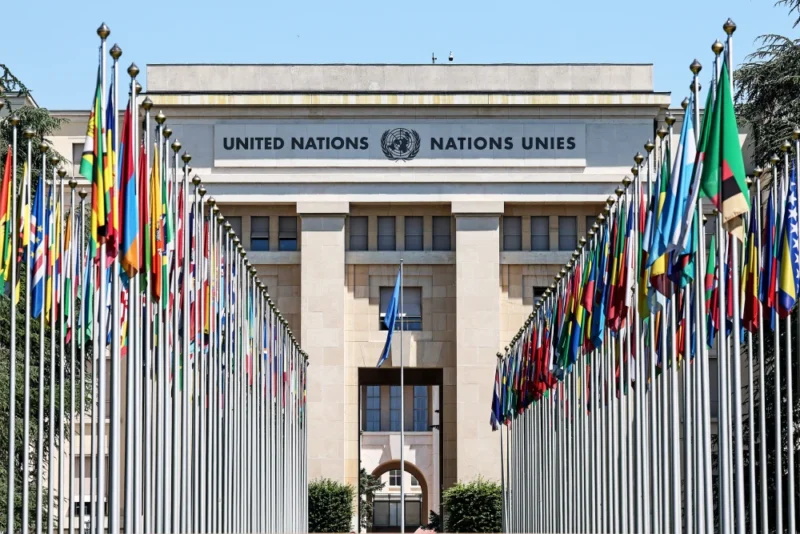
The United Nations said Monday it is waiting to learn how much of the nearly $4 billion owed by the United States the Trump administration intends to pay, and when the funds will be delivered, as the world body warns of a looming financial crisis.
UN Secretary-General Antonio Guterres cautioned last week that the organization faces an “imminent financial collapse” unless its funding rules are reformed or all 193 member states meet their financial obligations—a warning widely seen as aimed at Washington.
According to UN officials, the United States owes about $2.2 billion to the UN’s regular operating budget, including roughly $767 million for the current year, as well as an additional $1.8 billion for peacekeeping operations. Those arrears are expected to grow if payments are further delayed.
The United Nations confirmed that U.S. Ambassador Mike Waltz told officials the administration plans to make a significant initial payment within weeks, though the final amount has not yet been decided.
UN spokesman Stephane Dujarric said Secretary-General Guterres and senior UN financial officials have been in ongoing contact with U.S. counterparts, but stressed that the organization is still awaiting clarity. In a recent letter to member states, Guterres warned that funds for the UN’s core budget could be exhausted by July, potentially disrupting operations worldwide.
President Donald Trump has repeatedly criticized the UN, arguing it has failed to live up to its mission. His administration made no payments to the UN in 2025 and has withdrawn from several UN bodies, including the World Health Organization and UNESCO, while cutting funding to dozens of others.
UN officials say the United States accounts for roughly 95% of unpaid contributions to the organization’s regular budget. Venezuela is the second-largest debtor, owing about $38 million, and has lost its General Assembly voting rights after falling more than two years behind on payments.
Nearly 60 countries paid their annual UN dues by the February deadline, but officials warn that without U.S. action, the financial strain could soon become critical.
Top stories
South Korea Raids Spy Agency in Probe of Drone Flights Into North Korea

South Korean police on Tuesday raided the country’s intelligence services as part of an expanding investigation into suspected government involvement in drone flights into North Korea earlier this year.
Investigators from a joint military–police task force searched 18 locations, including the Defense Intelligence Command and the National Intelligence Service, authorities said. The raids are linked to a drone that North Korea claims was flown into its territory and shot down over Kaesong in January.
Pyongyang accused Seoul of sending the drone to drop propaganda leaflets and released images it said showed debris from the downed aircraft. The South Korean government initially denied any official role, with President Lee Jae Myung warning at the time that such an act would amount to a dangerous provocation.
Authorities now say they are investigating three active-duty soldiers and one intelligence agency employee in connection with the incident. Three civilians have already been charged. One has publicly claimed responsibility, saying the flight was intended to measure radiation levels near North Korea’s Pyongsan uranium facility.
The investigation also casts renewed scrutiny on former president Yoon Suk Yeol, who is on trial over allegations he illegally ordered drone flights into North Korea to help justify a declaration of martial law in late 2024. Prosecutors say the actions were designed to provoke a response from Pyongyang and create conditions for emergency rule. Yoon was impeached and removed from office last year after the plan collapsed.
Since taking office, Lee has sought to reduce tensions with the North, including ordering the removal of propaganda loudspeakers along the border. He has previously suggested an apology might be warranted for his predecessor’s alleged actions, though he cautioned against fueling domestic political divisions.
North Korea, meanwhile, has showcased new attack drones and accused the South of repeated provocations, as cross-border tensions continue despite intermittent efforts at de-escalation.
Top stories
Russia Warns Cuba Fuel Situation Critical; Havana Slams ‘Cruel’ US Tactics
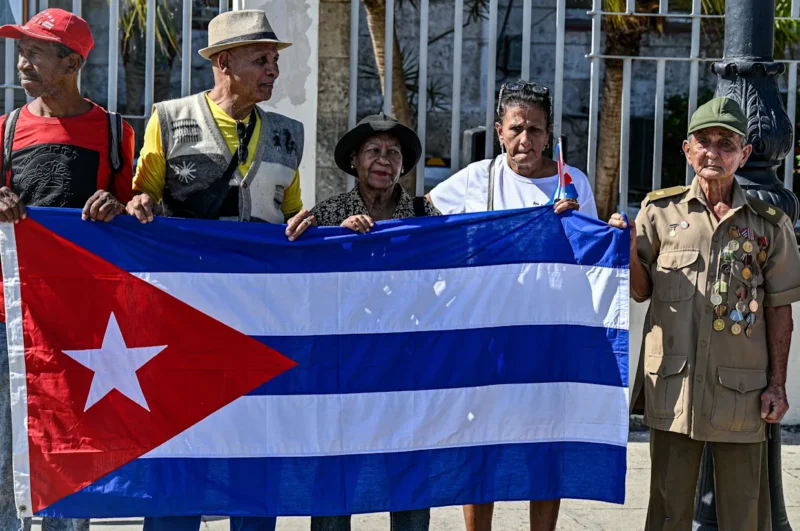
Russia has warned that Cuba’s worsening fuel shortage has reached a critical stage, accusing the United States of imposing “suffocating measures” aimed at crippling the island’s economy and political will.
Kremlin spokesman Dmitry Peskov said Monday that Moscow is discussing “possible solutions” to support Havana and stands ready to provide assistance. His remarks come as Cuba reels from severe energy shortages after Washington cut off oil flows from Venezuela and threatened tariffs against countries supplying fuel to the island.
“The situation is really critical in Cuba,” Peskov told reporters, blaming US sanctions for deepening the crisis.
Russian Foreign Minister Sergey Lavrov echoed that stance, expressing solidarity with Cuba and Venezuela and insisting both nations have the right to determine their own futures without external pressure.
Cuba’s fuel shortage has forced emergency measures across the country. Authorities have introduced a four-day work week for state firms, limited fuel sales, shut universities, shortened school hours and warned airlines that jet fuel supplies are running out. Air Canada announced Monday it would suspend flights to Cuba due to the lack of aviation fuel.
Cuban Foreign Minister Bruno Rodríguez condemned what he called Washington’s “cruel aggression,” saying the goal was to “break the political will of the Cuban people.” President Miguel Díaz-Canel said Havana remains open to dialogue with the United States, but not under coercion.
The crisis has drawn international concern. UN Secretary-General António Guterres has warned of a potential humanitarian collapse if Cuba’s energy needs are not met. Mexico’s President Claudia Sheinbaum also criticized US sanctions, vowing to continue diplomatic efforts to restore oil shipments despite the risk of American tariffs.
Washington, meanwhile, has defended its hard line. President Donald Trump has labeled Cuba an “extraordinary threat” to US national security and warned of further penalties against countries supplying the island with fuel, signaling that pressure on Havana is set to intensify.
Top stories
Curtain Falls on Hong Kong Press Freedom

Hong Kong’s most prominent pro-democracy media figure, Jimmy Lai, was sentenced on Monday to 20 years in prison under the city’s Beijing-imposed national security law, drawing sharp international condemnation and warnings that the punishment amounts to a life sentence.
The 78-year-old founder of the now-defunct Apple Daily was convicted of foreign collusion and sedition, the harshest penalty yet imposed under the law. Lai has been in detention since 2020. His family said the sentence is cruel and life-threatening given his age and deteriorating health, warning that he could die behind bars if the ruling stands.
Hong Kong leader John Lee defended the verdict, calling Lai’s actions “heinous” and saying the sentence upheld the rule of law. Beijing echoed that position, insisting the case was lawful and beyond dispute.
Western governments and rights groups reacted with alarm. Britain described the sentence as tantamount to a life term and urged Lai’s release on humanitarian grounds. The European Union said it deplored the ruling and called for an end to the prosecution of journalists. Australia and Taiwan warned the case would deepen the chilling effect on freedoms in Hong Kong and beyond.
Press freedom advocates said the verdict symbolized the collapse of independent journalism in the city. Human Rights Watch called the 20-year term “effectively a death sentence,” while legal scholars said the punishment appeared unusually severe and that an appeal should be considered.
Top stories
Ethiopia Warns Eritrea: Withdraw Troops or Face Escalation
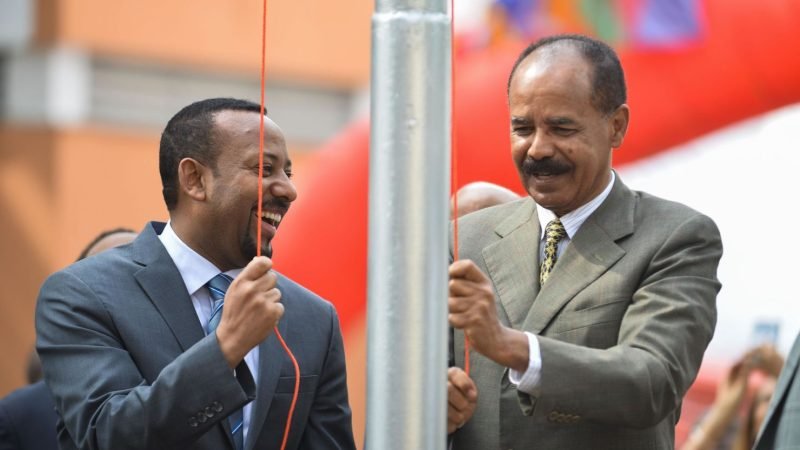
Ethiopia has formally warned Eritrea to withdraw its troops from what Addis Ababa says is Ethiopian territory, accusing Asmara of violating its sovereignty and backing armed groups along the border, while offering dialogue if the troops pull back.
In a letter sent on January 30, Ethiopian Foreign Minister Gideon Timothy told his Eritrean counterpart Osman Salah that Eritrean forces have occupied Ethiopia’s northeastern territory “for a long time,” undermining Ethiopia’s territorial integrity. The letter, confirmed by Foreign Ministry spokesperson Ambassador Nebiat Getachew, calls the actions a “complete invasion” and a breach of international law.
Ethiopia accused Eritrea of providing direct support to unnamed armed groups operating along the border, allegations that in the past have included links to the TPLF and Fano militias. It also warned that recent military movements show Eritrea has chosen “a path of destruction,” including joint operations with rebel groups on Ethiopia’s northwest frontier.
Addis Ababa said it is ready to enter sincere negotiations — including talks on maritime services and access to the port of Assab — if Eritrea immediately withdraws its troops and ends cooperation with rebel forces. The letter stressed that while Ethiopia is committed to peaceful dialogue after decades of conflict, Eritrea’s current actions are “unacceptable under any circumstances.”
So far, Eritrea has not officially responded. Ethiopia has also raised the issue with the United Nations, warning that Eritrean troop deployments along the border continue to fuel instability and serious human rights concerns.
Top stories
President Embraces Ownership as Polls Show Public Skepticism

U.S. President Donald Trump said the American economy now belongs to him, declaring he is “very proud of it,” as he seeks to take full ownership of economic performance ahead of the November midterm elections.
Speaking in an interview with NBC Nightly News anchor Tom Llamas that aired Sunday during the Super Bowl, Trump said the transition from the Biden-era economy is complete. Asked when the country entered the “Trump economy,” he replied: “I’d say we’re there now.”
Trump’s comments come despite widespread public dissatisfaction. An NPR/Marist/PBS News poll released last week found that just 36% of Americans approve of Trump’s handling of the economy, while 59% disapprove. Democrats have capitalized on economic anxiety, particularly around affordability, in recent off-year election victories in states including Virginia, New Jersey and New York.
In the Oval Office interview, recorded Wednesday, Trump argued that Democrats have quietly dropped their affordability message because of recent economic performance. He blamed former President Joe Biden for high prices, saying he inherited “a mess in every way.”
“In the last four days, the Democrats have not uttered the word ‘affordability,’” Trump said, without offering evidence.
Trump claimed the economy has grown by 5.6% since he took office, a figure not supported by official government data. According to the Labor Department, the economy grew at an annualized rate of 4.4% in the third quarter of 2025 and has not exceeded 5% growth in any quarter since 2021.
Economic output also contracted in the first quarter of 2025, partly due to uncertainty surrounding trade and tariff policies later announced by the administration. Fourth-quarter data has not yet been released because of a government shutdown.
A White House official said Trump was referencing projections from the Atlanta Federal Reserve, which at times estimated growth as high as 5.4%.
Trump also claimed that $18 trillion is being invested in the United States, citing new factories, plants and businesses. However, the White House’s own website lists $9.6 trillion in announced investments, and independent reviews have said even that figure is likely inflated.
Asked whether those projects would materialize before his term ends in January 2029, Trump said many would open within the next year or two.
In a previous NBC interview in May, Trump had drawn a sharper line, saying the economy’s “good parts” were his, while the “bad parts” belonged to Biden.
-

 Interagency Assessment2 months ago
Interagency Assessment2 months agoTOP SECRET SHIFT: U.S. MILITARY ORDERED INTO SOMALILAND BY LAW
-

 Somaliland4 months ago
Somaliland4 months agoSomaliland Recognition: US, UK, Israel, and Gulf Bloc Poised for Historic Shift
-

 Minnesota1 month ago
Minnesota1 month agoFraud Allegations Close In on Somalia’s Top Diplomats
-
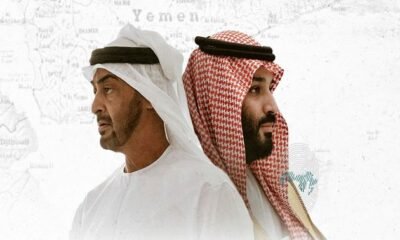
 Middle East2 months ago
Middle East2 months agoSaudi Arabia vs. UAE: How The Gulf Rivalry is Heating Up
-

 American Somali3 months ago
American Somali3 months agoWhy Frey Won a Significant Share of the Somali Vote Against a Somali Opponent
-

 Middle East2 months ago
Middle East2 months agoTurkey’s Syria Radar Plan Triggers Israeli Red Lines
-
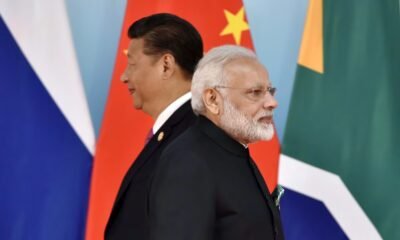
 Editor's Pick1 month ago
Editor's Pick1 month agoWhy India Is Poised to Become the Next Major Power to Recognize Somaliland
-

 The Million-Follower Exile2 months ago
The Million-Follower Exile2 months agoWhy America Deported Its Most Famous Somali TikTok Star And Who Paid The Price




